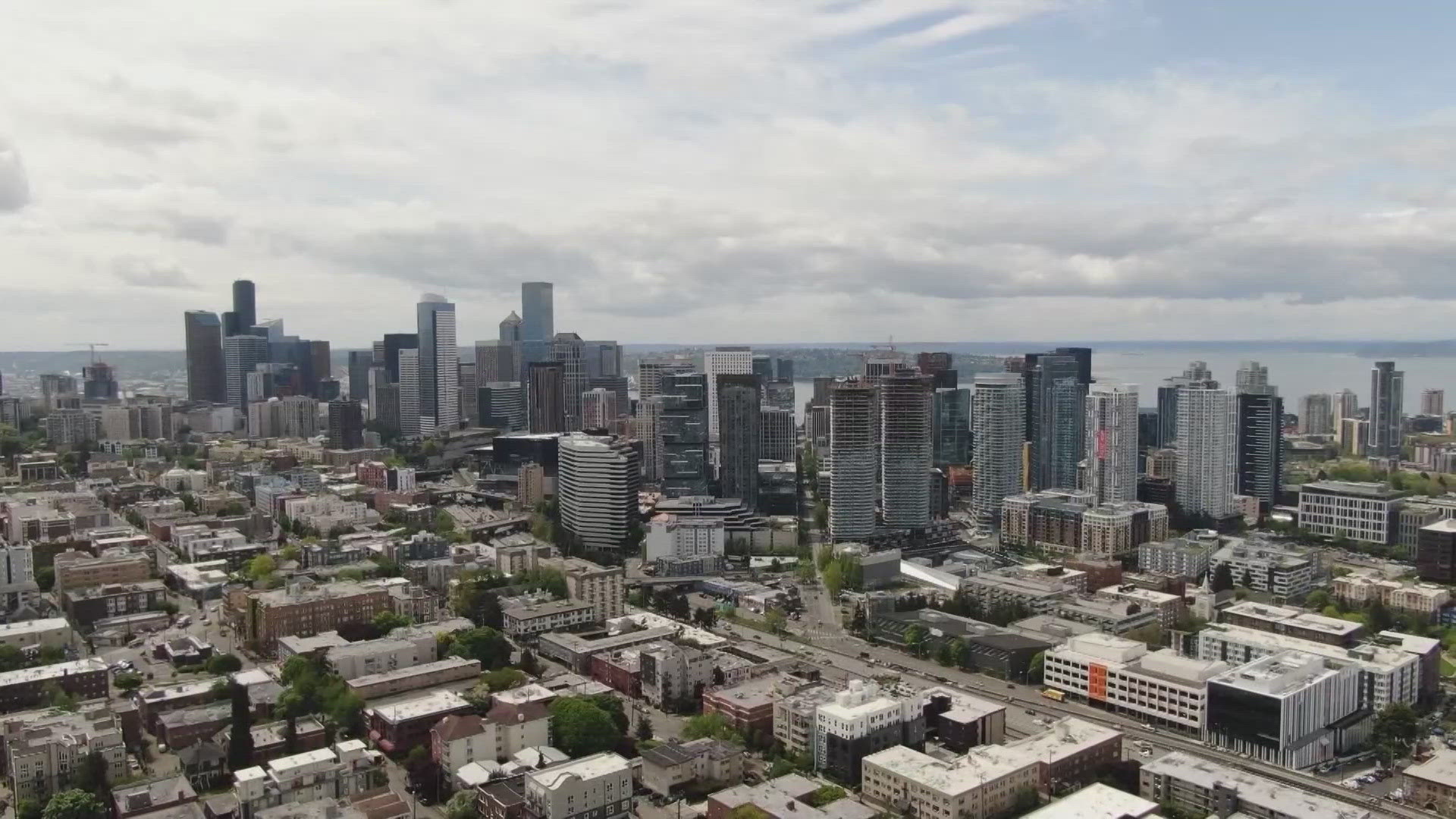SEATTLE — The Seattle City Council unanimously passed legislation Tuesday to reduce greenhouse gas emissions from the city’s existing buildings as part of its goal to reach net zero emissions by 2050.
The first-of-its-kind legislation in Seattle, sponsored by Councilmember Lisa Herbold, will target emissions from existing buildings. According to the city council, existing buildings account for 37% of the city’s total core emissions.
The city council estimates the legislation will reduce emissions from existing buildings by 27% and will reduce the city’s total core emissions by 10%.
The legislation enacts the Building Performance Emissions Performance Standard (BEPS) to oversee setting emission targets and monitor timelines. BEPS will require owners of buildings larger than 20,000 square feet to take steps to reduce their buildings’ emissions. The city council said the standards are performance-based allowing the building owners to choose what investments to make as long as they are meeting the reduction targets.
The Seattle's Office of Sustainability & Environment estimates that approximately 4,135 buildings on 3,580 properties will be impacted.
Some changes building owners will need to make include:
- Improving operations and maintenance, like aligning heating and cooling schedules with building occupancy
- Installing modern building controls for heating and cooling to sync energy use
- Improving energy-efficient systems, like efficient fans and pumps, water fixtures and ventilation
- Adding insulation, sealing air leaks and investing in new windows to reduce heat loss and reduce drafts
- Replacing conventional natural gas use with renewable natural gas
According to the city council, the city will also be offering assistance to building owners who have fewer resources, including nonprofits.
“Addressing greenhouse gas emissions is one of the greatest challenges of our time. Future generations will look back to this moment and judge us by what we did today to address our climate crisis. We experience the impacts here in Seattle: extreme heat, drought, and forest fire haze during the summer and even autumn has become normal. It’s time for us to take big swings and make sure we’re doing everything we can – for ourselves and for all future generations of Seattleites,” said Herbold.
The city’s ultimate goal is to reach net zero emissions by 2050, which was adopted in a 2011 resolution, and is in line with the United Nations’ 2050 goal, as called for in the Paris Agreement.

